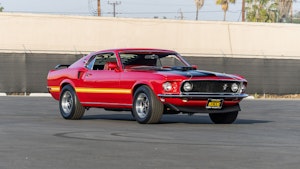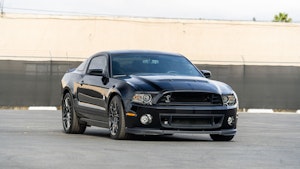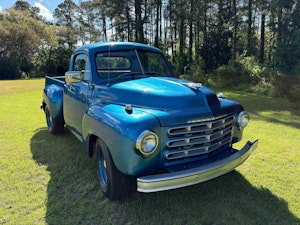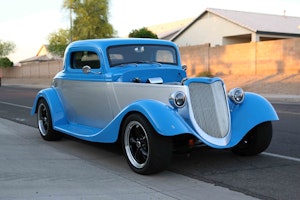Media | Articles
Don’t underestimate the fun of driving fast in a slow car
To relieve the COVID cabin fever, the pilots down at my local airport have been organizing leisure drives almost every weekend since March. Once—sometimes twice—a weekend, the security gates slide open and out files a procession of the kinds of classic and exotic rides that hide in the hangars of every small airport in America. The tour is of the surrounding suburbia, and, as the airport is about 3 miles from the Pacific Ocean, it manages to work in a few scenic views as well as occasional bits of curvy road. But there is traffic. Stoplights and stop signs and crosswalks abound, plus running kids and bolting dogs and lurking cops, so the speeds rarely rise above 45 mph. Which is one reason I’ve become a passionate advocate for cars from a slower age.
My favorite car for this run is my 1933 Austin Seven, which weighs about 800 pounds, has something like 17 horsepower, and proves that old axiom that it’s more fun to drive a slow car fast than drive a new Ferrari behind a Prius. The Austin cackles and clanks and makes 30 mph feel like you’re doing a hot lambada with death. Often on these drives I’ll be white-knuckling around some corner, leaning in like Louis Chiron to keep all four of the black hula hoops that are its tires on the pavement, while the guy in front of me is wondering if he’ll ever get to shift his GT3 out of second. I know who spent more money; I will take odds on who is more amused.

I have tried to spread the religion, sidling up to folks at the stops to wax on about how any car with Babbitt bearings, a thermosiphon radiator, or a preselector gearbox would make these cruises so much more fun, but so far, I have no converts. However, the pilots did try substituting their cars with their airport Vespas as a way to spice things up. Scootering at 45 mph is generally more exciting than dawdling at that speed in a kit Cobra—perhaps one reason the Motorcycle Industry Council reports that its members had a roaring year, with sales up 10 percent across all segments in 2020. Smaller-displacement bikes and scooters helped lead the charge, and many bike makers are now offering some flavor of sub-500cc entertainment.
Not wanting to be left out, I bought a used TU250X, a 250cc retro standard made by Suzuki to resemble an old Triumph or BSA but without the oil puddles and short-circuiting. It was cheap and seemed cooler than a scooter. But Suzuki Motor Corp. is both singularly marvelous at making awesome products and singularly terrible at distributing them, so I had to go all the way to Portland, Oregon, to find one. On the 1200-mile ride back, plowing through coastal fog and nearly through a herd of roaming elk, I had lots of time to contemplate why I am increasingly smitten with going slow.
Well, of course, I’m getting older. I’m not sure if that means I have reduced confidence in my abilities, actual reduced abilities, or just greater experience. As you age, you catalog more and more cautionary tales of the harsh penalties life can dole out to those who persist in their youthful cockiness—especially those who ride mountain bikes even though the exact same thrill can be had by jumping from a moving train. Besides making it easier to avoid the elk that are roaming in the fog, going slow has demonstrable charms, too, as I proved to myself while slaloming down the Pacific coast on the wee Suzuki. It felt about as heavy underneath me as a Schwinn, and I could crack it wide-open out of a corner with no fear of splatting against the car in front of me or, indeed, breaking the speed limit. Yet I was having a blast.
Marketplace
Buy and sell classics with confidence
Sure, I have ridden big bikes on the California coast. You spend a lot of time on the brakes, always holding the machine back, like constantly pulling on the reins of an overly spirited horse. The little 250 pranced from corner to corner and barely ever needed its brakes. A world with more throttle and less brake is surely one we all can agree would be better. And that world is possible, even on an increasingly crowded planet, if the throttle is connected to something older or smaller.













Wonderful article, I agree 100%. After progressing into faster and faster vehicles, I found myself pining for smaller, lighter, simpler, and slower cars…something I can actually explore the capabilities of more often, more of the time. I settled on a vintage Miata eight-plus years ago, and while I’m occasionally tempted to get something newer, faster, rarer, etc. I’m always thrilled to get back in my simple little car. My smile is bigger at 40MPH than the faster stuff at 90MPH.
Slow cars for the win!